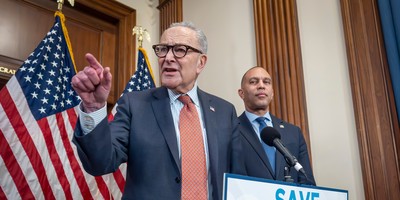As the spring semester rolls around, college graduates will be thrust into the workforce. With their pedigree from a fine institution of higher learning, and economy ready to receive them, they will surely be able to find employment! The American Dream, a beautiful one at that. Too bad it really won’t apply to most graduates.
According to the Federal Reserve Bank of New York, 44% of college graduates are underemployed, or working in jobs that they don’t need a degree for. College was originally only available to children of immense privilege. To some degree, that is still true. College Board has determined that a “moderate” budget at a private college for the 2013-2014 academic year is $44,750. With the cost of education often so high and the process of applying so meticulous, many potential students whose parents aren’t formally educated can’t assist them in applying to or attending college. Still, we have made great strides in including people from multiple countries, races, socio-economic classes, and religions into higher education. This, broadly, should be applauded. But the method in which it has been done should not.
College is a business, first and foremost. Let’s look a portion of the financial statements of a mid-sized college to prove this:
Without getting bogged down in this statement (it doesn’t help that most college programs probably don’t instruct students how to read this anyways since college doesn’t teach you much of anything practical anymore), let’s focus on the most important part: operating revenues, specifically, tuition.
It’s the first item, since it’s the largest, and largely explains the way college works the way it does. Between tuition and fees, schools take in $350,262,879 in net revenue. This is revenue after they factor in all the scholarships awarded. Now their operating revenue may be $471, 543,898. However, their operating expenses are $437,121,562. What does this mean? They’re only turning a bit under a 10% yearly profit. Being that tuition is the largest item, this means they can’t afford to lose many students at all. To put this in perspective, given this college’s tuition, if they lose 1,000 students from 2012 to 2013, (given there are twenty five thousand of them, that’s not really hard at all) they’re in the red and running a deficit.
Recommended
So now that we’ve highlighted the fact that you need to continuously drive enrollment, what do colleges do? Perhaps provide students with meaningful degree programs that are competitive in the worldwide market? Attract world-class professors and garner the interest of top tier students to perform groundbreaking research? Well…maybe a few schools, but not many. Instead, you have what was supposed to be a school turning into a circus. Pop artists, ridiculously unprofitable sports programs, movies, free events, carnivals, confusing degree programs (Nannying at Sullivan University). But most of all, ensuring, by any means possible, more federal student lending.
College meant something when a large percentage of the country wasn’t educated past high school, if that. It doesn’t mean much now that a significant portion of the country goes on to get a bachelors degree and means even less when the school is more concerned about getting tuition dollars than funding good programs. The worst part, however, is the fact that many of these students will have a hard time paying off these loans. Too many degree programs don’t offer entree into careers that merit taking on the debt required to earn them.
In student lending, the education lobby has convinced well-meaning people that higher education automatically translates to middle-class earnings. Unfortunately, reality doesn’t bear this out. Over $1 trillion of oustanding student debt has been accounted for in the third quarter of 2013, in contrast to the declining dilenquincies for mortgage, credit card, and auto debt according to the Federal Reserve Bank of New York. In an effort to extend college to everyone, the federal government has managed to create yet another potential crisis for which citizens, borrowers and taxpayers alike, will be on the hook.

























Join the conversation as a VIP Member